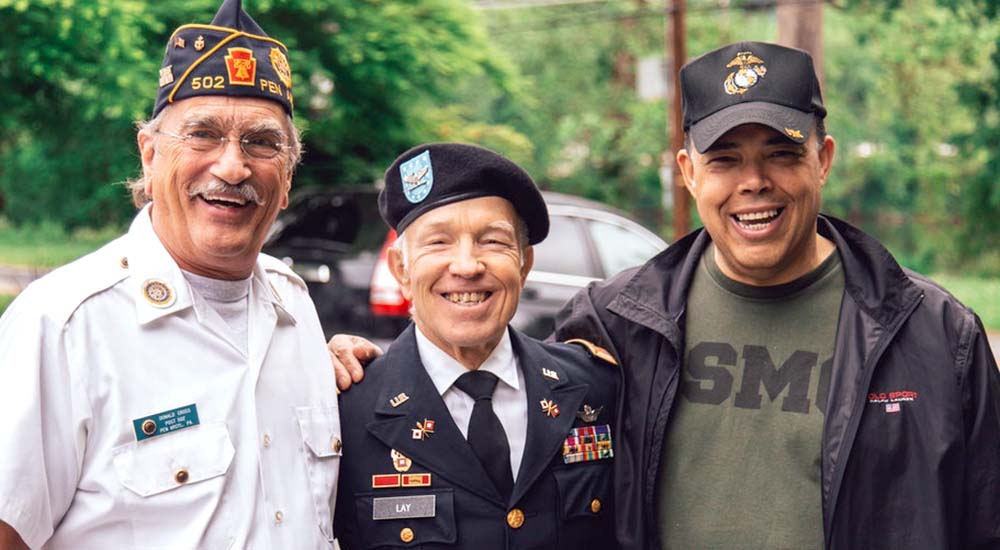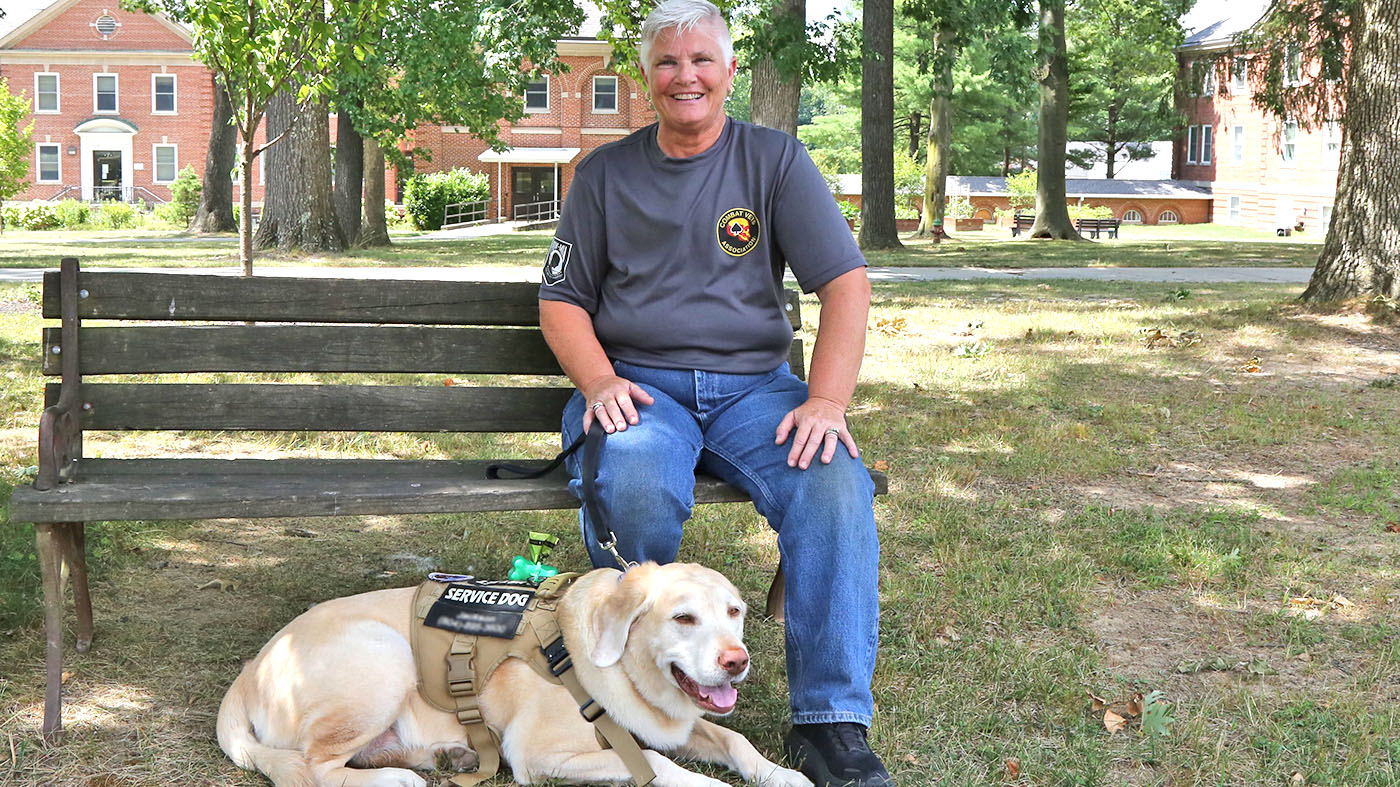Chronic kidney disease (CKD) is estimated to affect one in six Veterans.
There are currently approximately 500,000 Veterans diagnosed with CKD. That number is likely to increase by 30,000 people next year.
Michael Spigler is vice president of Patient Services and Kidney Disease Education at the American Kidney Fund (AKF). He notes that the partnership with VA brings awareness and resources to Veterans.
“Kidney disease is the fastest growing, noncommunicable disease (a disease that is not contagious) in the U.S., yet 90% of Americans, including Veterans, who have kidney disease are unaware they have early stages.”
Together, VA and AKF help Veterans with tools like the benefits for Veterans handout and the VHA Kidney Program The program provides kidney-related services to dialysis centers throughout VA medical centers. The partners also educate Veterans about risk factors, causes, complications and treatments for the disease and its associated conditions.
Link to video on YouTube
In addition to VA services – like dialysis care, VA’s eKidneyClinic and transplant services, the collaboration provides Veterans with support through awareness campaigns and events, nutritional advice through Kidney Kitchen, and a guide to help Veterans talk to their providers about managing the disease.
According to Spigler, nearly 1,000 Veterans have used the resource materials provided by VA and AKF. Also, the partnership’s Know Your Kidneys videos have aired more than 1,700 times on the Veteran News Network YouTube channel.
“VA and AKF share a common goal of supporting Veterans diagnosed with kidney disease by helping them live healthier lives through early identification and addressing the challenges Veterans face in managing their kidney health,” Spigler said.
Early identification means identifying the disease at an early stage with the assistance of health care providers. That can help with the management and treatment process of the disease.
African American Veterans risk almost double that of white Veterans
While anyone can get the disease, people of color disproportionately are diagnosed with kidney failure, which might require dialysis or a transplant.
VA research found that African American Veterans are at a significantly higher risk of developing CKD (12.7%) compared to Native Hawaiian/Pacific Islander Veterans, the Veterans with the second greatest risk of developing the disease (10.1%), and white Veterans (6.9%).
“AKF has been working for decades to combat the disproportionate impact that kidney disease and kidney failure has on populations historically underserved by the health care system,” Spigler says.
For example, in 2021, more than 60% of AKF’s grant recipients were people of color. Their grants and financial assistance programs may help Veterans with insurance premiums, transportation costs, prescription medications and other expenses related to care.
Advocates
Like the AKF, VA advocates for inclusion, diversity, equity and access (I-DEA) for all. By eliminating barriers and identifying positive opportunities for underserved communities, VA ensures all Veterans, their families, caregivers, and survivors have equitable treatment and access to quality health care.
Read more about VA’s commitment to I-DEA.
VA’s National Center for Healthcare Advancement and Partnerships (HAP) supports diversity and inclusion efforts for Veterans with their partnerships, like AKF.
More information about HAP partnerships.
Learn more about the American Kidney Fund.
Topics in this story
More Stories
Combat Veteran faces the traumatic events of her PTSD during prolonged exposure therapy and looks forward to the days to come.
Bob Jesse Award celebrates the achievements of a VA employee and a team or department that exemplifies innovative practices within VA.
The Medical Foster Home program offers Veterans an alternative to nursing homes.







I STAND CORRECTED I FOUND THE HEALTHY INFO IN THE ARTICAL
I did not see the info on healthy kidneys, keeping kidneys healthy as the intro suggested ( VA has IDEAs about kidney health) Please be clear with info What was the IDEA OR IDEA’S ?
How would this help a veteran born with one kidney?
VAntage point does a good job telling us what a good job VA medical services is doing. Unfortunately it does not seem to remember the “who, what, where, why and how.” E.g, kidney disease or CKD: what is it exactly; how did it become a problem; why is it a problem now; etc. I would like better definitions, perhaps from a real doctor rather than a PR department.
*Completely AVOIDABLE mistake
Inclusion, diversity and all that “woke” terminology to me, means, as a white veteran, if I got kidney disease, I will be put last.
It’s horrible what the VA is doing also putting blacks first regarding covid treatment. VA is racist and you know it. This is all about dividing black and white veterans who served together in harmony. What the VA is doing is despicable and cruel. The VA is making a huge, completely unavoidable mistake!
I don’t think this is race issue, so unfortunately you learning about equitable and accessibility to services where underserved communities- get a chance to have access to resources or people that were otherwise not considered or overlooked is not a woke (aka realizing and opening your eyes to a problem that has existed for quite some time) moment but a moment to treat each patient equally so we can all come to the VA and receive equal care.
Daily tart cherry juice. Goodbye to crab cakes and shellfish, and beer. Kidney pain can be most excruciating and getting ahead of it can prolong a high quality of life.
The VA discovered my kidney cancer after looking for another issue. I had no indication that I had a kidney problem. Unfortunately, the kidney doesn’t always let you know there is an issue until it becomes a major problem. Keep your regular appointments and don’t be afraid to let your primary care physician if you have pains or other issues. Find it early and be a survivor.
Please tell me what the reason for solve: */??????
thank you for the information. keep the e mails coming. Sincerely Larry D. BirgerSr
A Vietnam Veteran.
not a good thing to have an even worse thing to try to manage